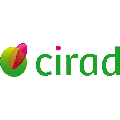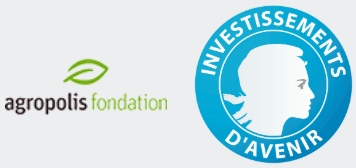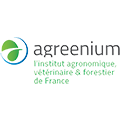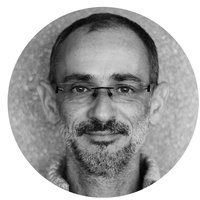NECTAR : Nématodes Cultures Taxonomie Arthropodes
- Duration: 5 weeks
- Effort: 25 hours
- Pace: ~5 hours/week
- Languages: English and french
What you will learn
At the end of this course, you will be able to:
- Implement techniques for collecting insects, mites and nematodes
- Understand the different approaches of modern taxonomy and inputs of molecular biology
- Determine the importance of taxonomy for agroecosystem management
- Describe and analyze applied case studies involving indentification of insects, mites and nematodes
Description
Taxonomy is a fundamental and elementary science. Arthropods and nematodes constitute the majority of species on earth. Being able identify them is thus critical for biodiversity conservation and management.
- Knowing which arthropod or nematode pest species are present in cultivated areas is an essential step for implementing new crop protection strategies using lower amounts of pesticides.
- Knowing which arthropod or nematode natural enemy species are in cultivated areas is critical for efficient biological control measures and to avoid pest outbreaks and invasions (biovigilance).
- Knowing which arthropod or nematode species are present in the natural environment enables threatened species to be identified and biodiversity conservation and management strategies to be developed.
To respond to these challenges, a high quality training course on methods to identify these organisms is essential, particularly in a context where the teaching of taxonomy in Europe is increasingly limited, endangering the future of taxonomical research and the development of biological control and biodiversity management strategies.
This MOOC (in French and English) will deliver 5 weeks of course material and other pedagogical activities covering the following topics:
- Classification of arthropods and nematodes
- Application of these integrative concepts for agroecosystem management through case studies
- Collection and trapping methods
- Morphological and molecular identification methods
This MOOC aims to build knowledge and promote exchanges within an international student community. Through innovative pedagogy, you will valorise your practical and scientific experience with the help of experts, professors and researchers, of Montpellier SupAgro and Agreenium partners.
Format
This MOOC is open access. There is no forum and it does not offer a certificate of achievement nor a verified certificate.
Prerequisites
This MOOC is entended for a passionate public, curious about biodiversity, interested in discovering the world of arthropods/nematodes and the bases of their identification, and willing to share knowledge and learn from others.
All professionals seeking to acquire knowledge and skills essential for the development of agroecosystem management strategies addressing current societal challenges such as biodiversity conservation and pesticide-free crop protection.
All students willing to learn the scientific foundations of how to operationalize crop management strategies using less pesticides.
Watch out ! Pre-requisites in biology are required.
Assessment and certification
This course does not offer a certificate of achievement nor a verified certificate.
Course plan
- Arthropods and Nematodes: Who are they? (1 weeks)
- Arthropods and Nematodes: Why knowing about them? Taxonomy and agriculture, which challenges? (1 week)
- Arthropods and Nematodes: How to find? How to collect? (1 week)
- Arthropods and Nematodes: How to identify them? Part 1 : Morphological identification (1 week)
- Arthropods and Nematodes: How to identify them? Part 2 : Molecular identification and innovations in taxonomy (1 week)
Course team
Marie-Stéphane Tixier
Categories
Emmanuelle Artige
Categories
Armelle Coeur D'Acier
Categories
Jean-François Martin
Categories
Thierry Mateille
Categories
Serge Kreiter
Categories
Laurent Soldati
Categories
Jean-Claude Streito
Categories
Isabelle Touzard
Categories
Sabine Guichou
Categories
Nathalie Agbagla
Categories
Julien Rose
Categories
Organizations
Mooc Author

Montpellier SupAgro, National Institute of Agricultural Graduate Studies in Montpellier, trains managers in the sectors of agriculture, food, and the sustainable management of natural resources and territories. The institute is engaged in:
- training engineers;
- initial and continuous training, research, dissemination of knowledge, expertise and support for innovation and entrepreneurship;
- supporting agricultural technical training;
- contributing to international scientific, technical and pedagogical cooperation, particularly with countries in the Mediterranean and tropical regions.
Located in an exceptional scientific and research environment that is a global leader in agronomy, Montpellier SupAgro benefits from networks of professionals and partners at the forefront of research and innovation.
Montpellier SupAgro is committed to the evolution of digital technology and is recognized for its initiatives in the field of pedagogical innovation. Accompanied by the "Pedagogical and Digital Resources" service, the teaching teams are developing multiple ways to use digital technology training programs.
Montpellier SupAgro works with the FUN platform for the distribution of MOOCs. The objectives are to propose and co-build a set of free resources and training courses for the general public.
These online courses open to all promote the development of active communities. They contribute to the sharing of knowledge with teacher-researchers and students in initial training and throughout life..
Scientific Partners



CIRAD
CIRAD is the French agricultural research and international cooperation organization working for the sustainable development of tropical and Mediterranean regions.
INRA
The National Institute of Agricultural Research (INRA) is a French agricultural research organization.
IRD
The Research Institute for Development (IRD) is a French research organization, original and unique in the European development research landscape.
Funders


Agropolis Fondation
This project is funded by Agropolis Foundation under the reference ID 1401-002 within the framework of the "Investments for the Future" program (Labex Agro: ANR-10-LABX-0001-01)
Agreenium / IAVFF
Agreenium Online University brings together and supports digital Agroscience resources.
License
License for the course content

Attribution-NonCommercial-ShareAlike
You are free to:
- Share — copy and redistribute the material in any medium or format
- Adapt — remix, transform, and build upon the material
Under the following terms:
- Attribution — You must give appropriate credit, provide a link to the license, and indicate if changes were made. You may do so in any reasonable manner, but not in any way that suggests the licensor endorses you or your use.
- NonCommercial — You may not use the material for commercial purposes.
- ShareAlike — If you remix, transform, or build upon the material, you must distribute your contributions under the same license as the original.
License for the content created by course participants

All rights reserved
"All rights reserved" is a copyright formality indicating that the copyright holder reserves, or holds for its own use, all the rights provided by copyright law.
















